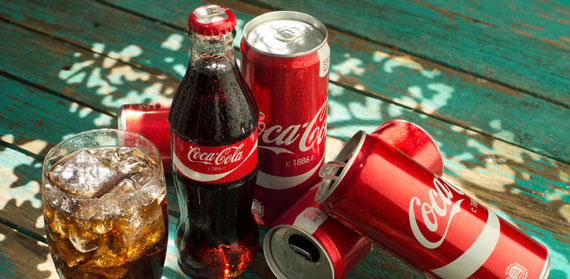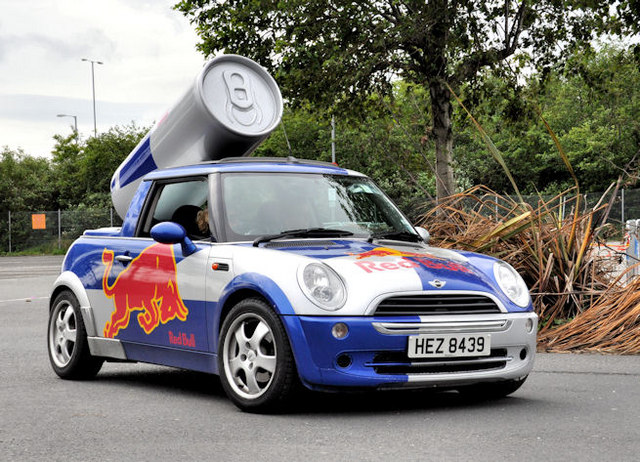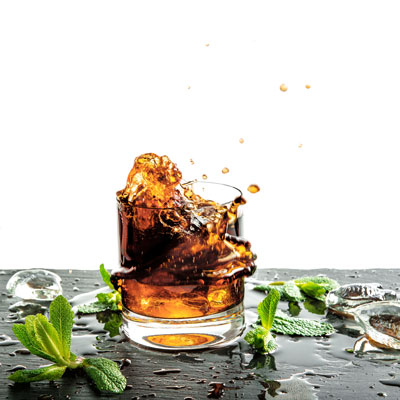Shutterstock
Guest post by Professor Lyndon Simkin, Centre for Business in Society
For well-known drinks brands Red Bull and Coca-Cola, the relationship between alcohol and their products until now has been left to the bar tender or consumer. Neither company is the producer of alcoholic beverages. Any party-night at university and most Friday and Saturday nights ‘out on the town’ will, however, witness many requests for vodka and coke, rum and coke, or any other permutation of coke with well-known alcohol brands. The same alcohols are popular when mixed with Red Bull or other energy drinks. However, until now neither well-known producer has ventured into the production of alcohol-laced product lines.
Some years ago, I worked closely with the marketing team at Red Bull. This was a talented international team responsible for Red Bull’s global domination of the energy drink sector. They had targeted new territories and successfully entered most countries thought of as appropriate sales territories. They had stretched the brand into many market segments, from students revising and seeking help in staying awake and concentrating, jaded commuters requiring a pick-me-up on long journeys, managers facing wear-out in overly-long business meetings able to open a Red Bull-shaped chiller full of rejuvenating Red Bull cans, as well as sports-active consumers requiring an adrenalin boost in order to keep going. So where next to seek volume growth in sales? The elephant in the room was alcohol. Already a party-drink of choice for millions of students around the world, Red Bull was frequently mixed with vodka or rum. But not sold ready-mixed by Red Bull. The tension amongst the marketing team was palpable. Huge volumes would undoubtedly be sold by Red Bull if it offered consumers ready-mixed alcoholic variants of Red Bull. To do so, however, would cross a line… associating the brand explicitly with alcohol. Not only would this cause significant challenges with certain cultures, demographic groups and regulators, but the extreme sports so strongly associated with Red Bull sponsorship would cry foul, too. This ethical dilemma for Red Bull’s marketers and executives was critically important to its marketing strategy and product development plans, trade relationships, brand positioning and indeed to its franchise with its consumers.
So, I was intrigued when just before Easter, while researching brand strategies for a new book, I came across news on the BBC website that for the first time in its 125-year-old history, Coca-Cola is planning to launch an alcoholic drink. Not for the clubs in UK cities, the cafes in Paris or the bars on the streets of Berlin, but as an alcopop-type product in Japan, Coca-Hol. Speaking to BBC News, Jorge Garduno, Coca-Cola’s head in Japan, explained, “We haven’t experimented in the low alcohol category before, but it’s an example of how we continue to explore opportunities outside our core areas. Coca-Cola has always focused entirely on non-alcoholic beverages, and this is a modest experiment for a specific slice of our market”.
There is a rapidly growing demand amongst Japanese consumers for Chu-Hi, which are canned sparkling flavoured drinks given an alcoholic kick with a local spirit called shochu. This vodka-like spirit is distilled from potatoes, barley, rice or sugar and has seen 40% growth in recent years. Chu-Hi is short for shochu highball, marketed as an alternative to beer and proving to be very popular with female drinkers. Added ingredients have included acerola, wild basil and yoghurt. In Japan, the most popular flavours are strong citrus-based ones, such as lemon or grapefruit, but there are grape, apple and peach varieties, too. Strong Zero, Highball Lemon and Slat are some of the leading brands already on the market, but there are hundreds competing in a market enjoying huge growth over the past five years.
The large Japanese alcohol players, Kirin, Suntory, Takara and Asahi all have Chu-Hi products, ranging from 3% to 8% alcohol by volume. As these canned products are pre-mixed, they pre-empt consumers asking for a vodka and coke or rum and coke, potentially reducing in-bar sales of Coca-Cola. If Coca-Cola sat back and did not enter the category, it would inevitably witness a falling demand for its colas in bars, as some consumers prefer to buy the pre-mixed Chu-Hi alcopops. By entering this growing segment, Coca-Cola can benefit from these new sales and have a slice of the action, as well as utilise its obvious expertise in canning and distributing sparkling drinks.
Consumers the world-over are familiar with the Coca-Cola brand, the vintage bottle design, popular flavour varieties and Coke’s distribution across bars, supermarkets, kiosks and vending machines. The company’s entry into alcopops in Japan demonstrates how global brands recognise opportunities in local markets and modify their marketing strategy in order to satisfy local consumer behaviour, fend-off local competition and leverage local sales potential.
The intrigue now is to what extent Coca-Cola will leverage its Japanese experimentation and seek to provide alcohol-based mixed products on a more global scale… vodka and Coke, rum and Coke, etc. Coca-Cola would, after all, only be bringing to market product lines that bar tenders and consumers already mix for themselves. I am reminded about the visible stress and anxiety in the eyes of those Red Bull managers, faced with hugely attractive potential sales volumes but struggling to square the inevitable ethical concerns, cultural clashes, regulatory pressures, media probing and possible consumer backlash associated with such a move into producing alcohol-based product lines.
Coke’s alcopop launch in Japan cannot have been an easy decision. It must be one now causing its bosses in Atlanta all sorts of mixed emotions. If Coke’s brand extension stretches further in this direction, it will cause many others mixed emotions, too. Should Coca-Cola bring ready-mixed alcohol-based products to other regions and markets? The ethical dilemmas facing brands seeking continual sales growth and searching for a competitive edge are considerable.
Sources: “Coca-Cola to launch alcoholic drink in Japan”, Financial Times, March 7 2018; Coca-Cola plans to launch its first alcoholic drink”, BBC News, March 7 2018; “COCA-HOL. What is Chu-Hi, what’s the Coca Cola alcoholic drink and is it available in the UK?”, The Sun online, March 7 2018.






Comments are disabled